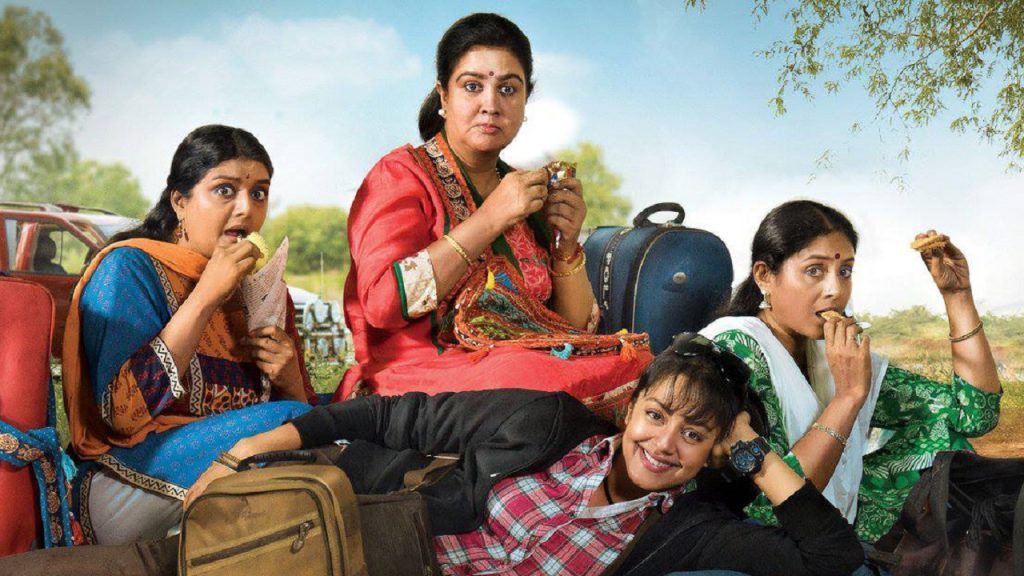Magalir Mattum is a feminist tale but thankfully, it is not the kind of stereotypical or aggressive bra-burning feminism of the West. Rather, it is a narrative almost all Indian woman can relate to. What emerges then is a heartwarming story that succeeds in leaving you with a smile and that bit of a lump in the throat.
Prabavathi (Jyotika) is a documentary film-maker whose would-be mother-in-law Gomatha (Oorvasi) wonders what has happened to her two best friends Subbulakshmi (Saranya) and Rani Amirthakumari (Banupriya), both of whom she has not met in more than three decades.
Each of the three women have their hidden yearnings and dreams crushed by being trapped in so-called acceptable social constructs like marriage. Rani is the wife of a rich politician and runs a big household but as she says, she’s just one more maid taken by granted by her family. Subbulakshmi plays a beautician stuck with a terminally ill mother-in-law who constantly curses her and an alcoholic husband brilliantly played by Livingston. Oorvasi has lost her husband and is unsure of what she will do when her daughter-in-law and son move to Qatar. The turning point comes when Prabavathi a helps them connect via Social Media and whisks them off on a road trip where they rediscover themselves – the self that was lost to gruelling routine and social demands. And as as the women find liberation, their families too ultimately realize their true worth.
The film weaves back and forth between flashbacks of the three friends showing their strict stifling convent style education and how the ‘three musketeers’ still managed to break free. The portrayal of life in the 1970s is well done and will make those who grew up in that period feel extremely nostalgic and would surely bring that childish grin to their faces. The thrill of attempting the forbidden, like when they sneak off to watch an adult film and stolen moments with their first love are nicely handled feel-good moments bringing out the camaraderie between the three friends. From their adult lives, scenes like the ones where they hit a punching bag and vent out their frustrations against their husbands will undoubtedly strike a chord and resonate strongly with many women.
While overall the film does have a big heart and is undoubtedly engaging in most places, it still has its share of glitches. It drags in the bits where it sluggishly sets up the main storyline. And while the performances are generally spot on and pitch perfect, Jyotika and Oorvasi nevertheless have their share of over-the-top melodramatic moments that stick out and go against the general grain of the film. It would also have helped if the men were painted with grey strokes rather then being depicted as totally black or white and if the film had some more depth to it.
The camerawork is adequate but the music by Ghibran is surprisingly average. Ultimately, it’s the sure-handed direction by Bramma that stands out. The overall success of the film is that it’s not preachy and yet, it convincingly gets the message across loud and clear that women are to be cherished and not to be taken for granted. Kudos also to producer, Suriya, for backing this effort.
Tamil, Drama, Color


